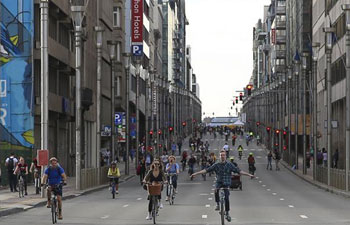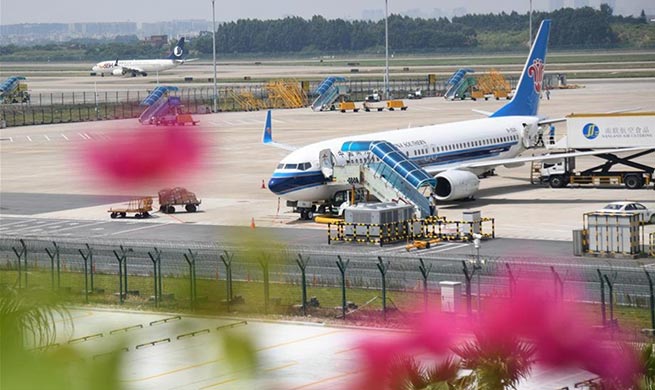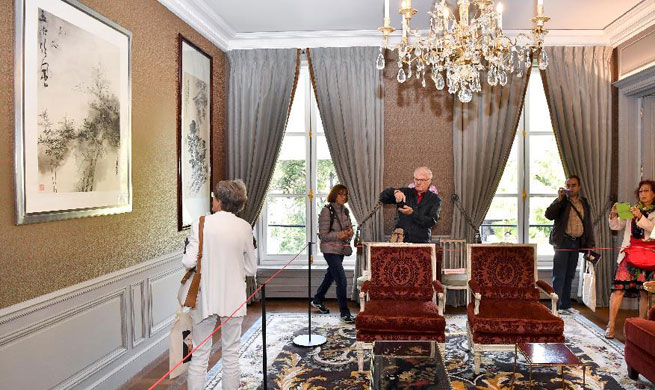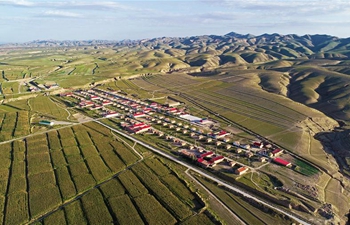HAVANVA, Sept. 16 (Xinhua) -- Cuban President Miguel Diaz-Canel on Sunday said his government is open to talks with the United States based on respect towards the island country's sovereignty, independence and its political system.
In an interview to Latin American network TeleSUR, Diaz-Canel said that after U.S. President Donald Trump came into power, relations between Havana and Washington have faced a "serious setback."
"We don't deny the possibilities of dialogue with the Trump administration but it has to be between equals, where our sovereignty and independence are respected. Cuba isn't going to make any concessions," he said.
Diaz-Canel said Washington rolled back thawing links by dictating measures that are "totally unacceptable" for Cuba.
"If this aberrant attitude is maintained, there will be no dialogue. We should ask Trump if he wants to talk but it can't be from a prepotent position," he said.
Last year, Trump signed a presidential memorandum toughening U.S. policy towards Cuba, a document that prohibits U.S. companies from doing business with firms associated with Cuba's military, and restricts U.S. citizens' travel to the Caribbean nation.
According to the Cuban president, the new policy aims to limit Cuba's economic development and goes against the will of most U.S. citizens, entrepreneurs, academics and other sectors.
"There is an important business and agricultural sector that wants relations and investments with Cuba. Also universities, academics and scientists want greater engagement and exchanges between both countries," he added.
Relations were also hampered by alleged "attacks" on U.S. diplomats in the island which led to the partial closure of the U.S. embassy in Havana and the expulsion of 15 Cuban diplomats in Washington.
"In the midst of rolling back relations, they created a fallacy. We have not attacked anyone," Diaz-Canel said.
After months of investigations, security agencies of both countries have demonstrated that the alleged attacks never took place.
The Cuban leader also urged Trump's administration to lift the economic blockade on the island which has become the main obstacle for its development.
"It is a brutal policy. It's against human rights of our people and their lives," he said.
According to a recent report released by the Cuban Foreign Ministry, economic losses caused by the U.S. blockade on the island totaled over 4.3 billion U.S. dollars between April 2017 and March this year.













